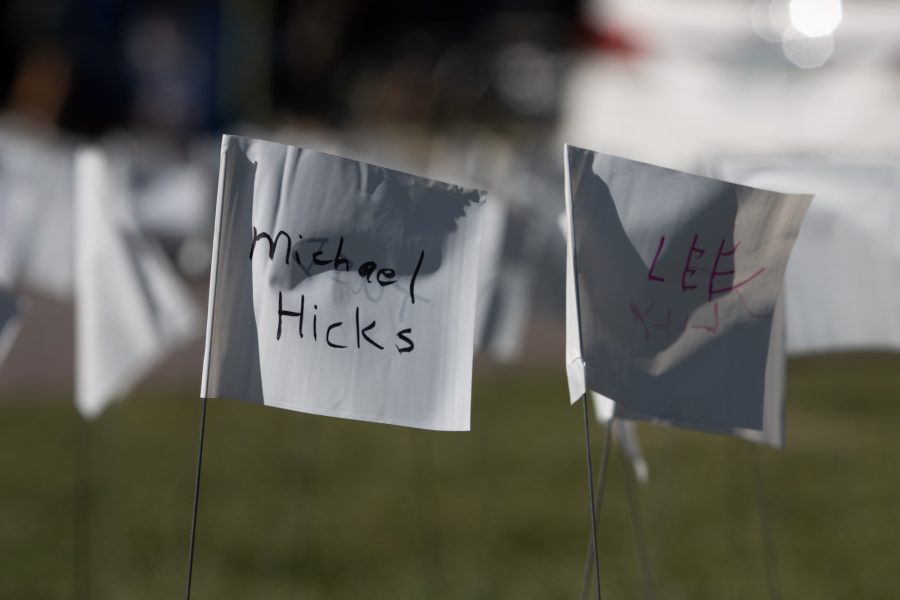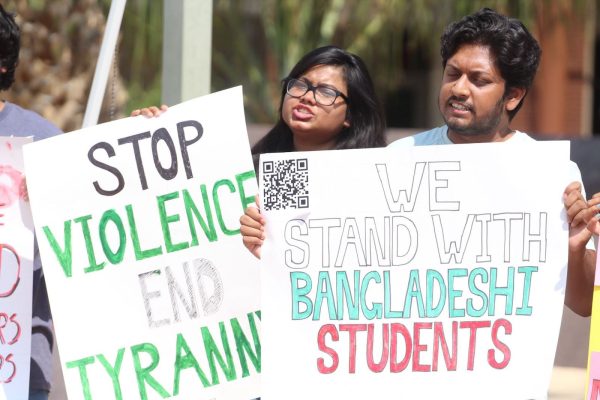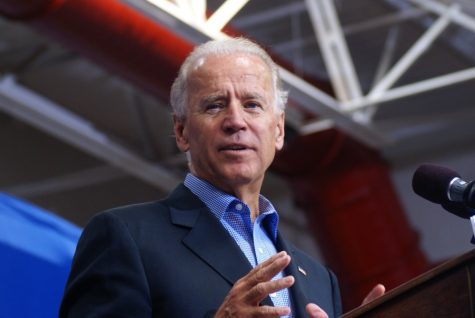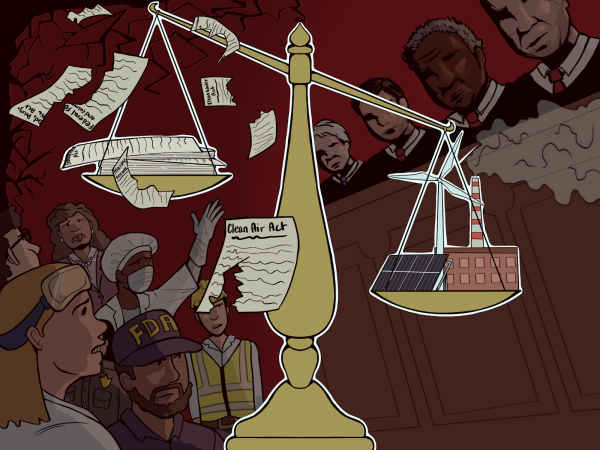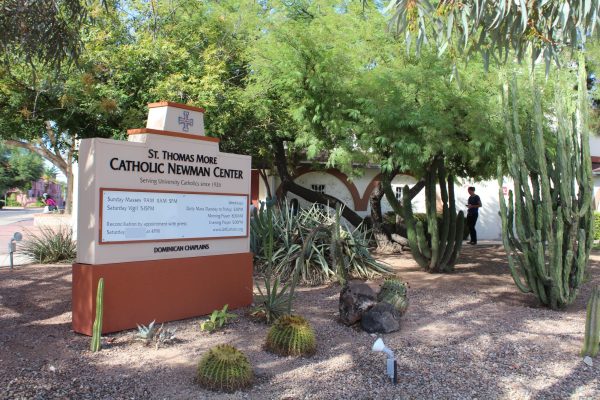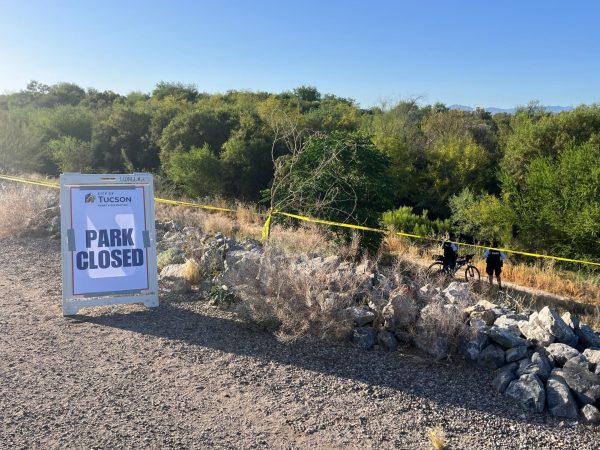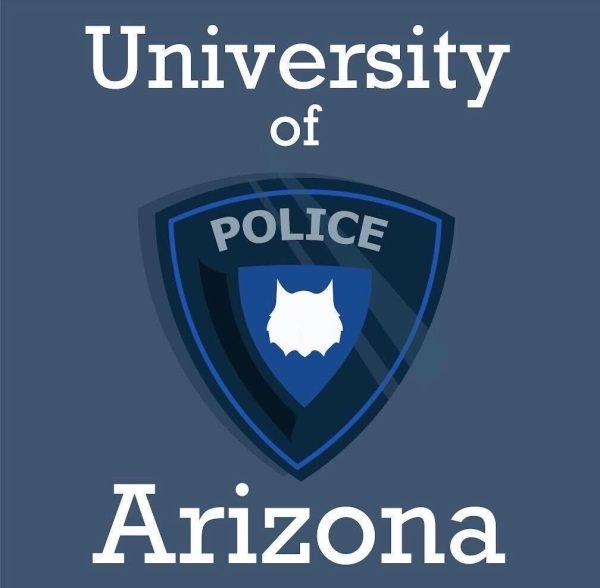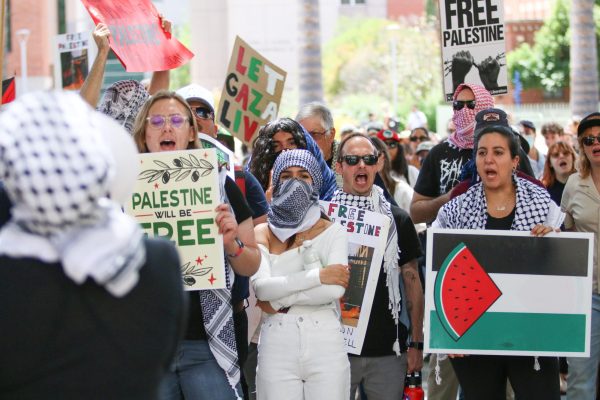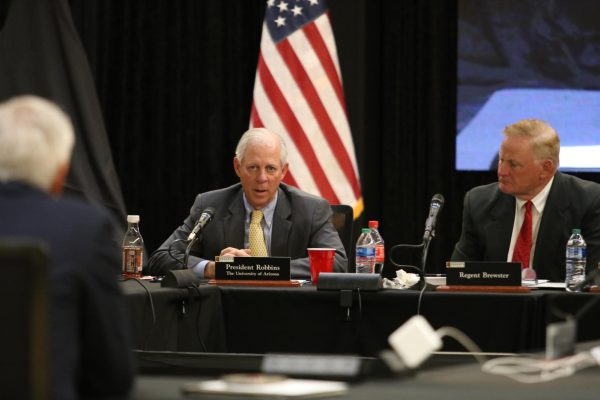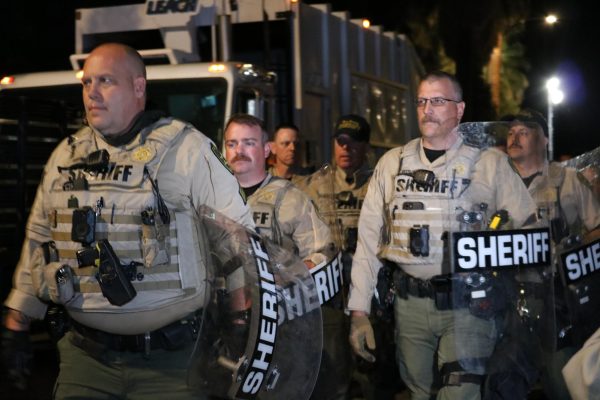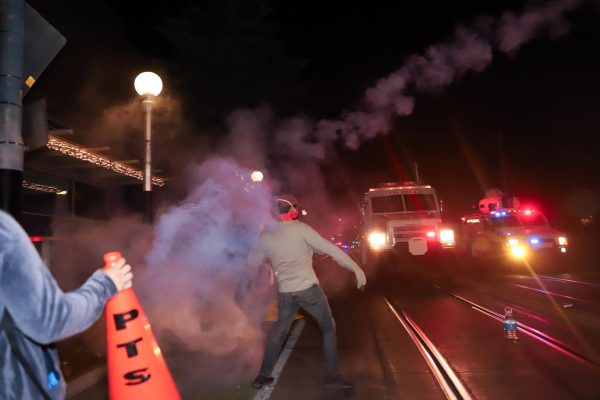University of Arizona marks two-year anniversary of the COVID-19 pandemic
Two flags with names written on them stick out from the grass at the University of Arizona campus on March 23. Many of the attendees wrote the names of those they knew who were lost due to COVID-19.
March 28, 2022
The University of Arizona held “A Day of Memory, Healing, and Hope” on Wednesday, March 23 to commemorate the two-year anniversary of the beginning of the COVID-19 pandemic. The ceremony, hosted by the University Religious Council, featured poems, songs and stories from various speakers. Lin Haurani, president of the URC, said that the event was intended as “a day for remembering what has been lost since the pandemic began.”
There were two ceremonies held, one in the morning at 9 a.m., and one in the afternoon at 1 p.m. President Dr. Robert C. Robbins spoke at the 9 a.m. ceremony, and Senior Vice President of Academic Affairs and Provost Liesl Folks spoke at the 1 p.m. ceremony.
One noticeable fact regarding the ceremonies was the numerous white flags that adorned each side of the Mall. There were 1,400 white flags on each side totaling 2,800 flags, with each flag representing 10 Arizonans who lost their lives to COVID-19.
“With these flags, students are able to pick them up and write on them something they had lost. Whether that be a friend, family member, or opportunities,” said Assistant Director of the Hillel Center Abbii Cook. “These flags will then eventually be turned into an art exhibit.”
During the ceremonies, Haurani led with a brief land acknowledgment, then introduced Robbins, who reflected on the beginning of the pandemic and how it changed the university as a whole.
“I remember exactly where I was at the beginning of the pandemic. I was in Las Vegas at the Pac-12 Basketball Championship during spring break. It was March 11 on a Wednesday and Provost Folks called me, and we made the very difficult decision to tell students, faculty and staff to not return to campus,” Robbins said.
He also spoke of the losses experienced by everyone during the pandemic, whether that be a loss of a family member, friend or even opportunities.
“Today, we honor not only those lives that are lost but also the resilience of our community. We celebrate our hope for the future and remember the unity we demonstrated in those early days,” Robbins said.
Robbins went on to exalt the efforts made by the university during the early stages of the pandemic.
“Because of the ability for us to do on-site testing and tracing, especially early on in the pandemic before the vaccine was available, the university did not experience any significant outbreaks or spread of disease,” he said. “This was in large part because of the innovation and expertise of our faculty, as well as the dedicated efforts of our staff and our students to mitigate the risk to our campus.”
Robbins ended his speech on a high note, saying that the Wildcat spirit still lives on even after two years of the pandemic.
At the 1 p.m. ceremony, following the same procession of events as the 9 a.m. ceremony, Haurani introduced the next speaker, Folks.
Folks kept her speech fairly brief, starting by bringing attention to a similar memorial that had been put together in Washington D.C., representing the entire nation’s losses to COVID-19, and encouraging attendees to visit it if they had the chance. She then brought attention back to the event, saying that this two-year anniversary marked, “the lockdowns in March 2020, which precipitated two years of fear, anxiety and mourning … [and] the losses reflected by these 2,800 flags.”
She followed up, expressing deep appreciation for the “science that has helped us understand, more and more, how to keep ourselves safe,” listing a number of scientists on campus that had made contributions to the University’s and the nation’s COVID-19 response.
Folks then took a moment to recognize the heart of the purpose of the event, which sought to recognize that “we’re in pain because we lost loved ones … because important life events went uncelebrated … because we lost precious moments … because we were unable to relax and feel safe,” she said, characterizing the memorial event as an opportunity to “pause to celebrate the little things … going out to a restaurant, attending classes, giving someone a hug.”
Both speeches at their respective ceremonies were followed by a series of presenters affiliated with the URC, who recited prayers and poems and sang songs and hymns.
Follow Kiara Adams on Twitter



